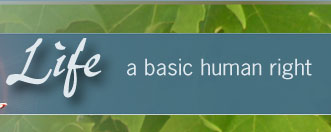| |
Here are a few key articles. For the most part, these
are primary sources: written by people who were, and
continue to be, instrumental in the culture of death
movement. The sources spell out the goals and methods
of the movement, and discuss what they consider to be
their successes and failures.
Bear in mind that these are written from a right-to-die
perspective; so that, for example, "protect the
patient's rights" means protect the patient's right
to die (right to refuse treatment).
Here is a small sample of sources; we will continue
to add to the list as time permits.
Beresford, Larry; Elizabeth Johnson. "Last Acts:
Leverage Points; A Report Based on the Second National
Last Acts Leadership Conference, October 29-30, 1997."
Formerly online at the Last Acts web site, www.lastacts.org.
Now archived
online.
Report on Ira Byock's keynote address to over 275
leading health care professionals, activists, and
bioethicists. In the address, Byock outlines the Last
Acts strategy to reverse what they saw as American
"culture's deep-seated denial and avoidance of
death."
Bronner, Ethan. "The
Foundation's End-of-Life Programs: Changing
the American Way of Death." To Improve
Health and Health Care, Vol. VI; The Robert
Wood Johnson Foundation Anthology. San Francisco:
Jossey-Bass, 2003.
Christopher, Myra. "Role
of Ethics Communities, Ethics Networks, and Ethics
Centers. Improving End-of-Life Care."
Pain Medicine. Vol. 2, No. 2. 2001; pp. 162-168.
Myra Christopher is CEO of Midwest Bioethics Center
(now called Center for Practical Bioethics) in Kansas
City, MO (see extensive discussion within the timeline
below). She discusses the way in which MBC used state
bioethics networks to build the Last Acts end-of-life
coalitions, and cites specific examples including
Kansas City; Oklahoma; North Carolina; New Jersey;
Utah; Nevada; Minnesota.
Dahl, June; Mary Bennett; Matthew Bromley; David Joranson.
"Success
of the State Pain Initiatives: Moving Pain Management
Forward." Cancer Practice. Vol. 10, Suppl.
1; May/June 2002; pp. S9-S13.
June Dahl and the American Alliance of Cancer Pain
Initiatives were sponsored by Soros' Open Society
Institute ($105,000 in 2001) and RWJF (approx $1.4
million in 2000) to target specific states for narcotics
deregulation. The state pain initiatives participated
in Bill Moyers' On Our Own Terms grass roots activities.
The initiatives also provided yet another network
upon which Midwest Bioethics Center could develop
RWJF's "Community-State Partnerships" program.
Joranson, David E. "Improving
availability of opioid pain medications: Testing
the principle of balance in Latin America." Innovations
in End-of-Life Care. Vol. 5, No. 1. 2003: http://www2.edc.org/lastacts
David Joranson's funding includes $300,000 from Soros'
PDIA, and over $2 million from  RWJF. RWJF.
Sabatino,
Charles. “De-Balkanizing
State Advance Directive Law,” BIFOCAL, newsletter
published by the American Bar Association's Commission
on Law and Aging. Vol. 25, No. 1. 2003. pp 1, 6-9.
Apparently de-Balkanization is good if the decision
is in favor of withdrawal of hydration/nutrition and
opioid deregulation.
Weisfeld, Victoria; Steven Schroeder; et al.
"Improving
Care at the End of Life: What Does it Take?"
Health Affairs. Vol. 19, No. 6; Nov/Dec 2000;
pp. 277-283.
|







